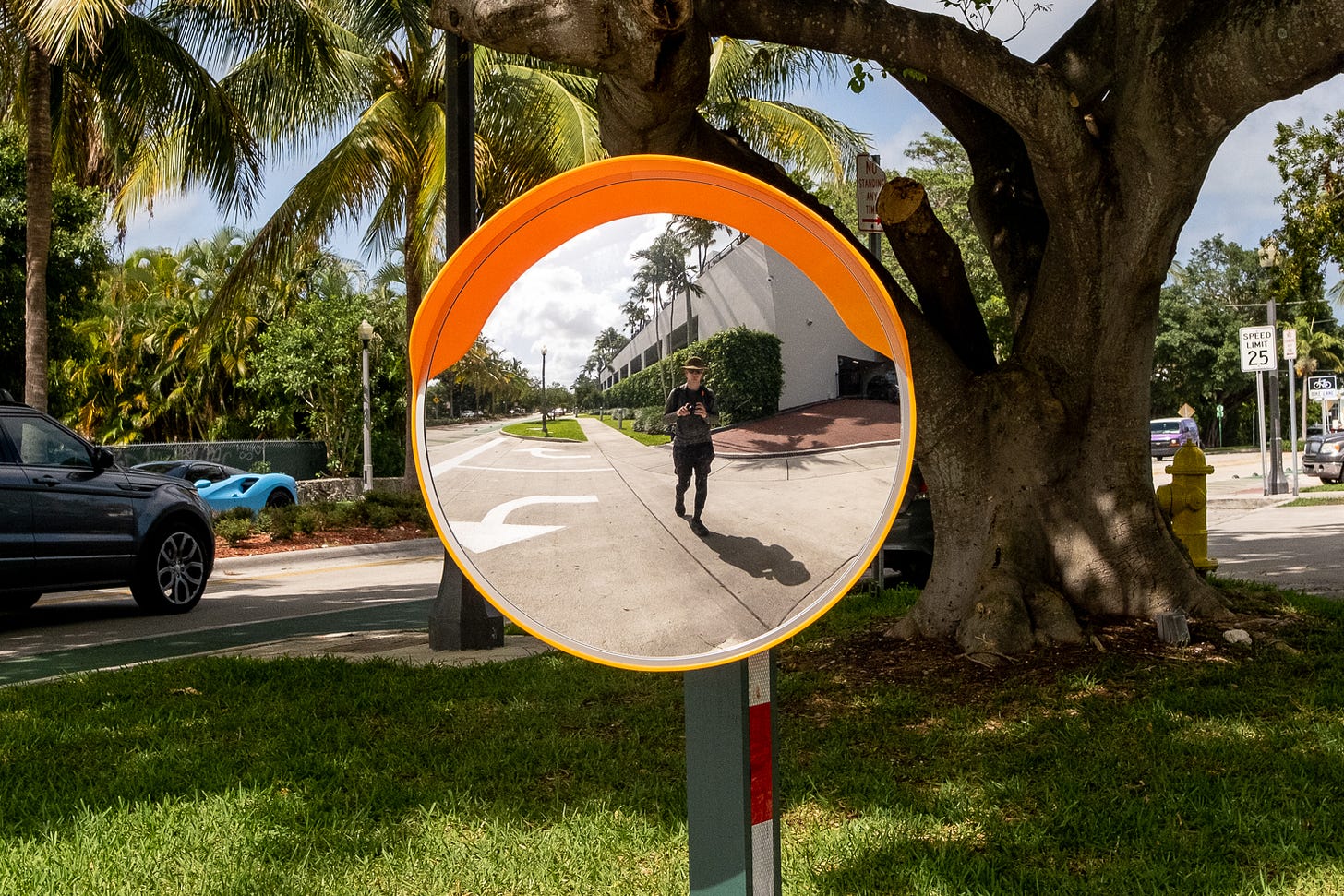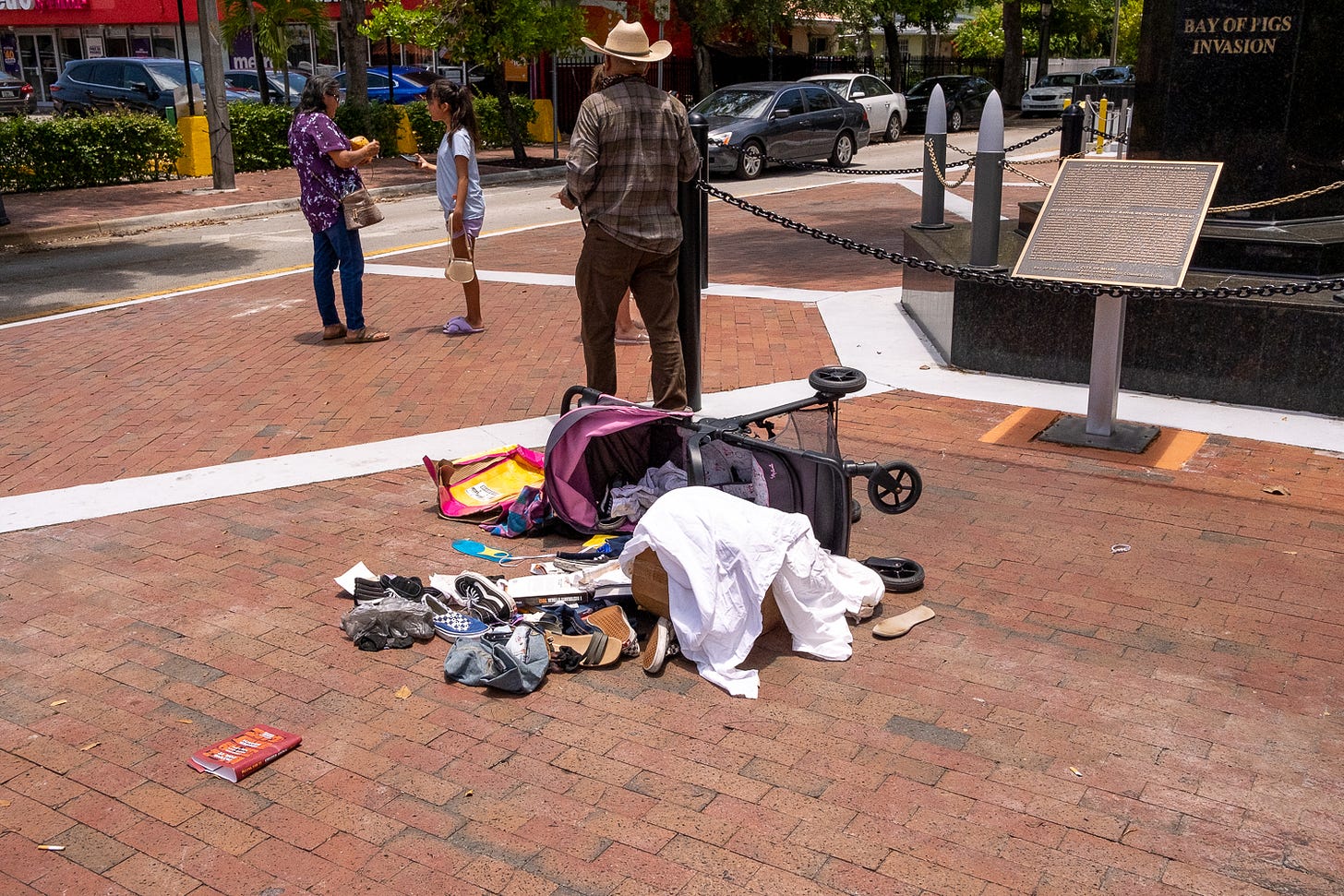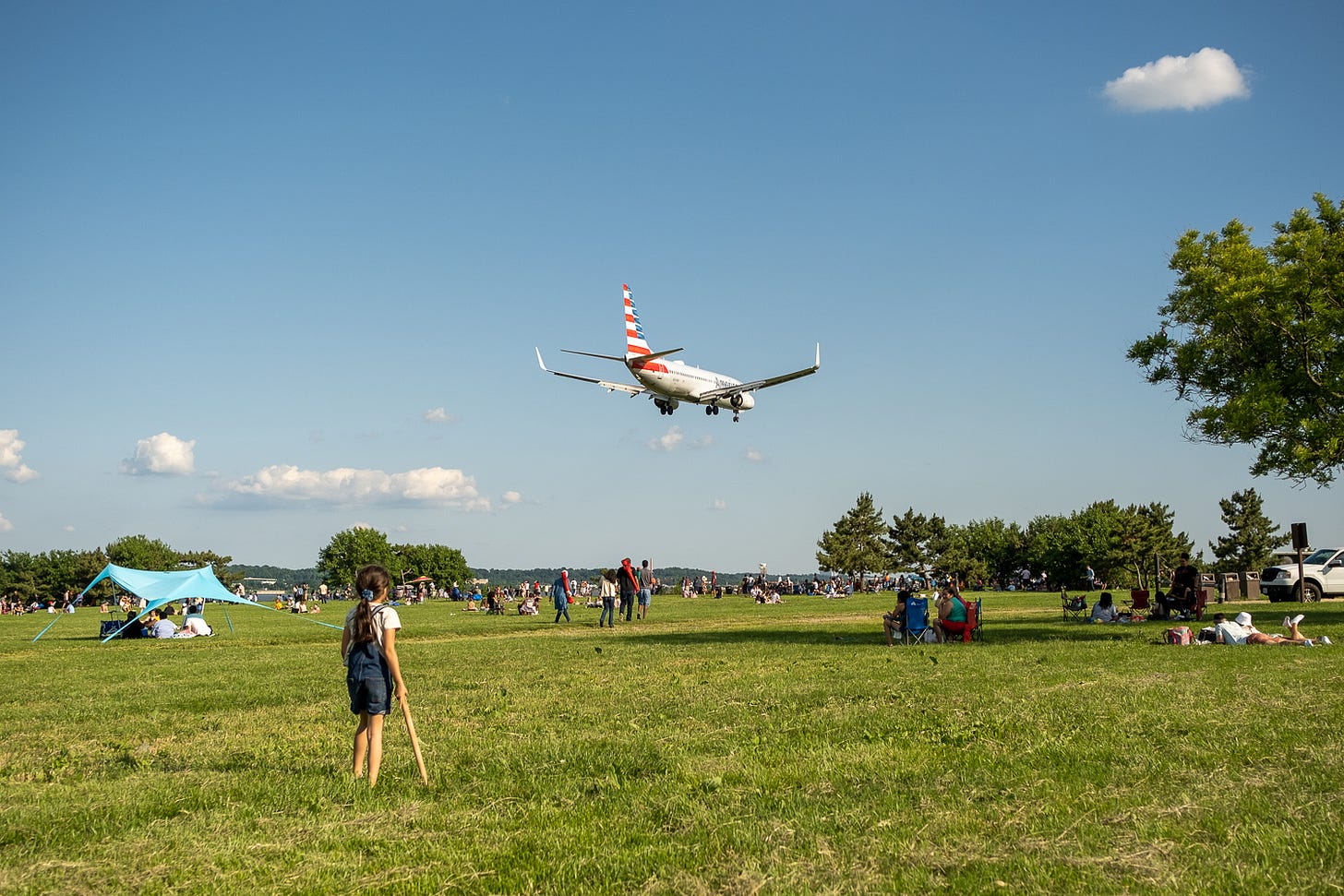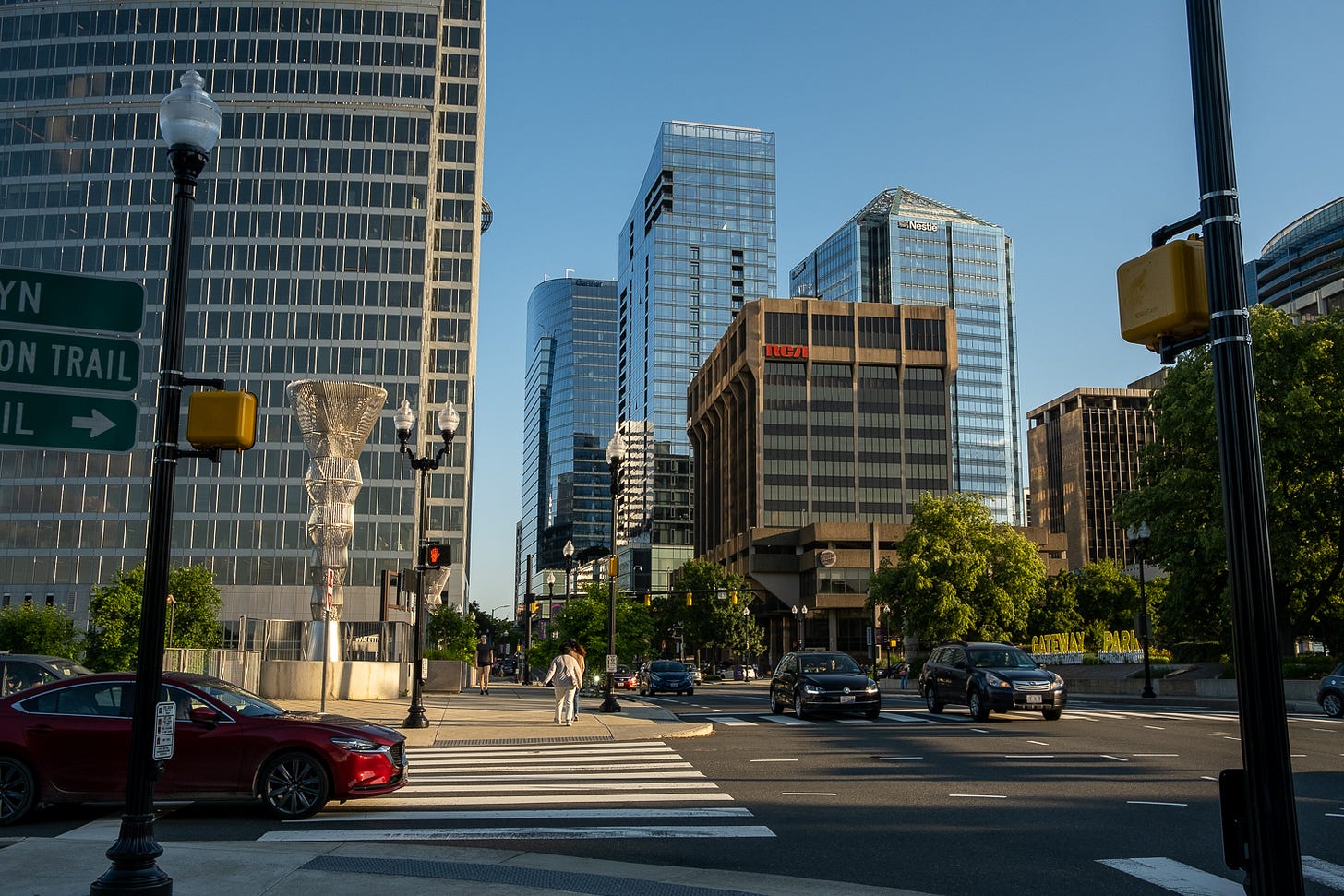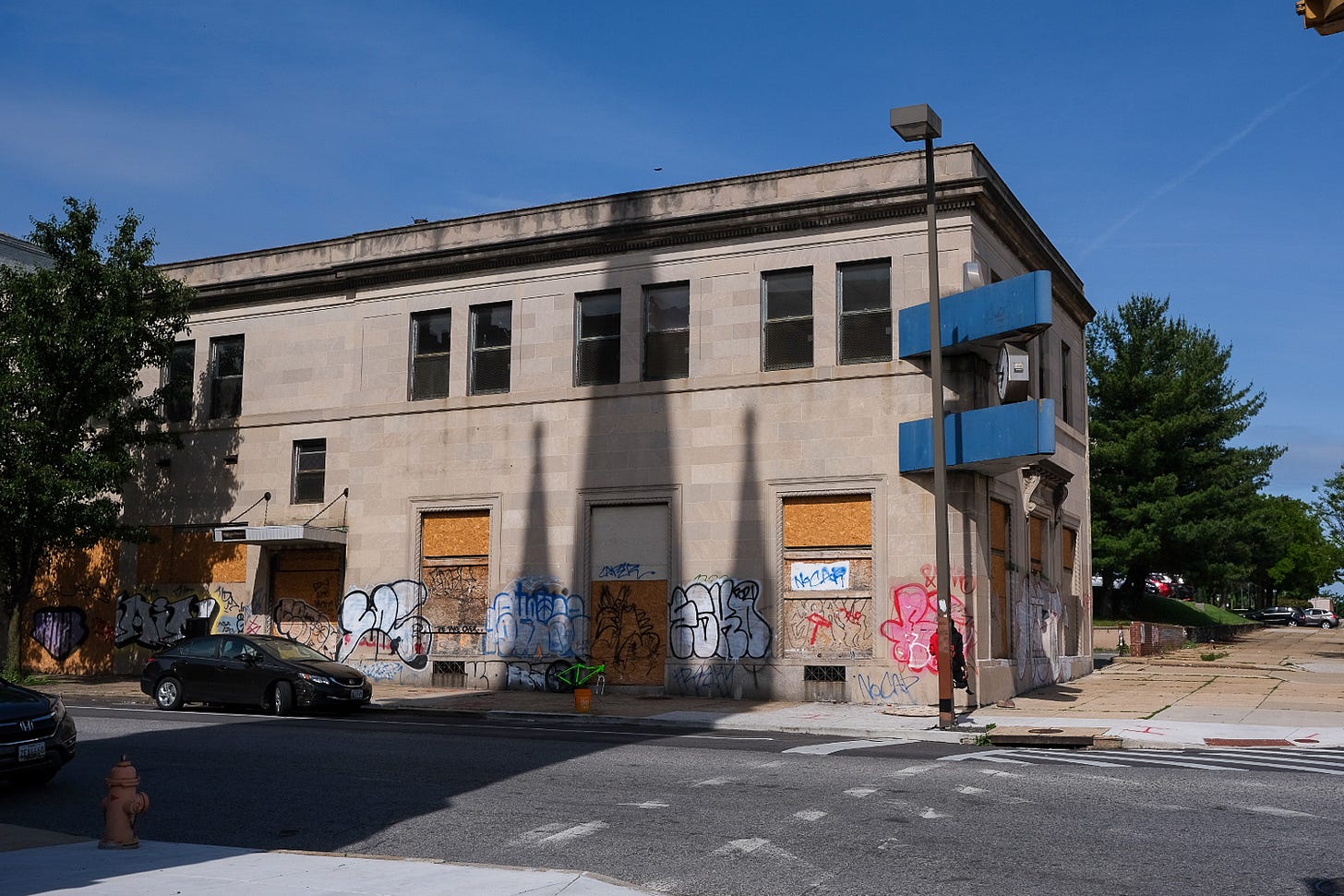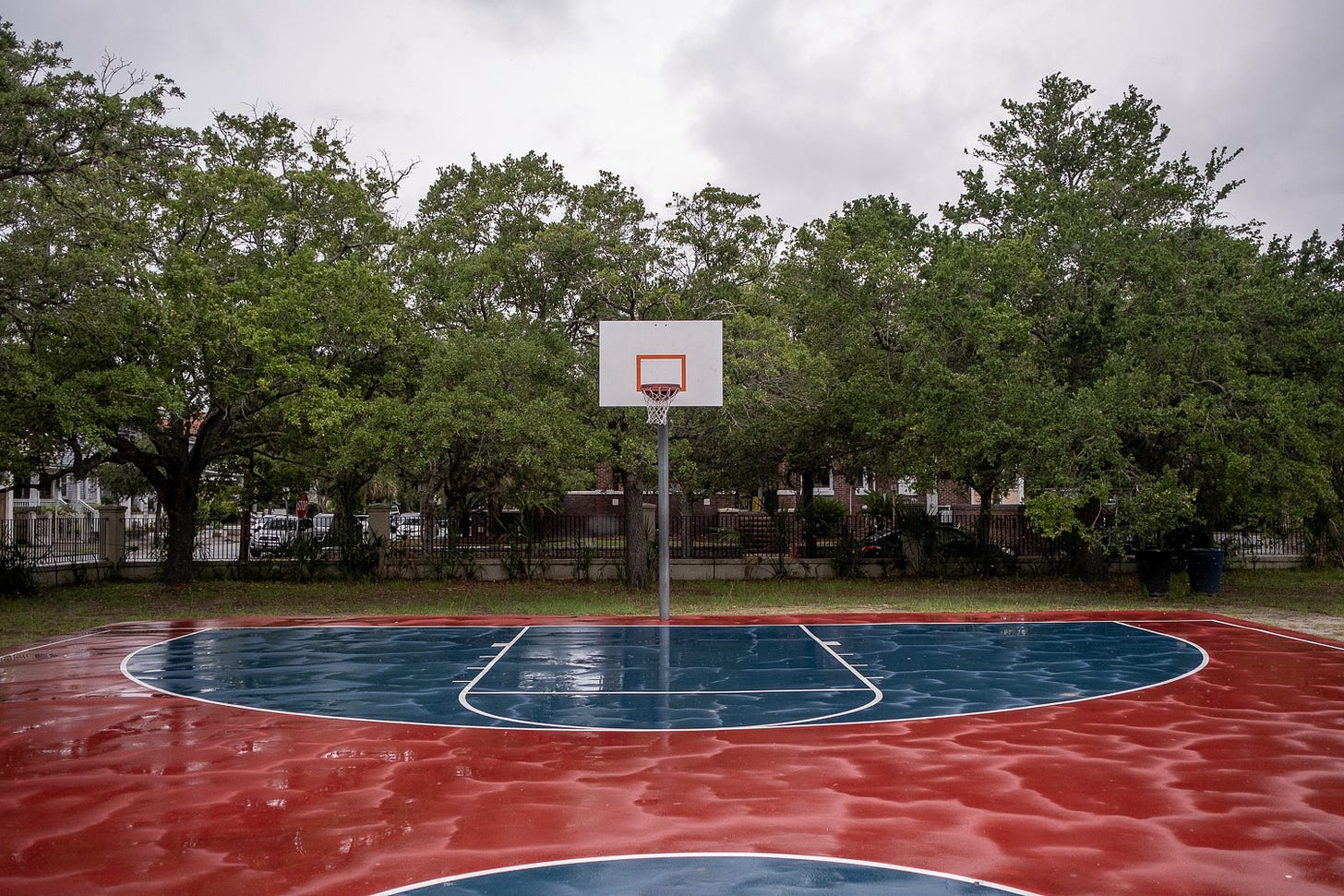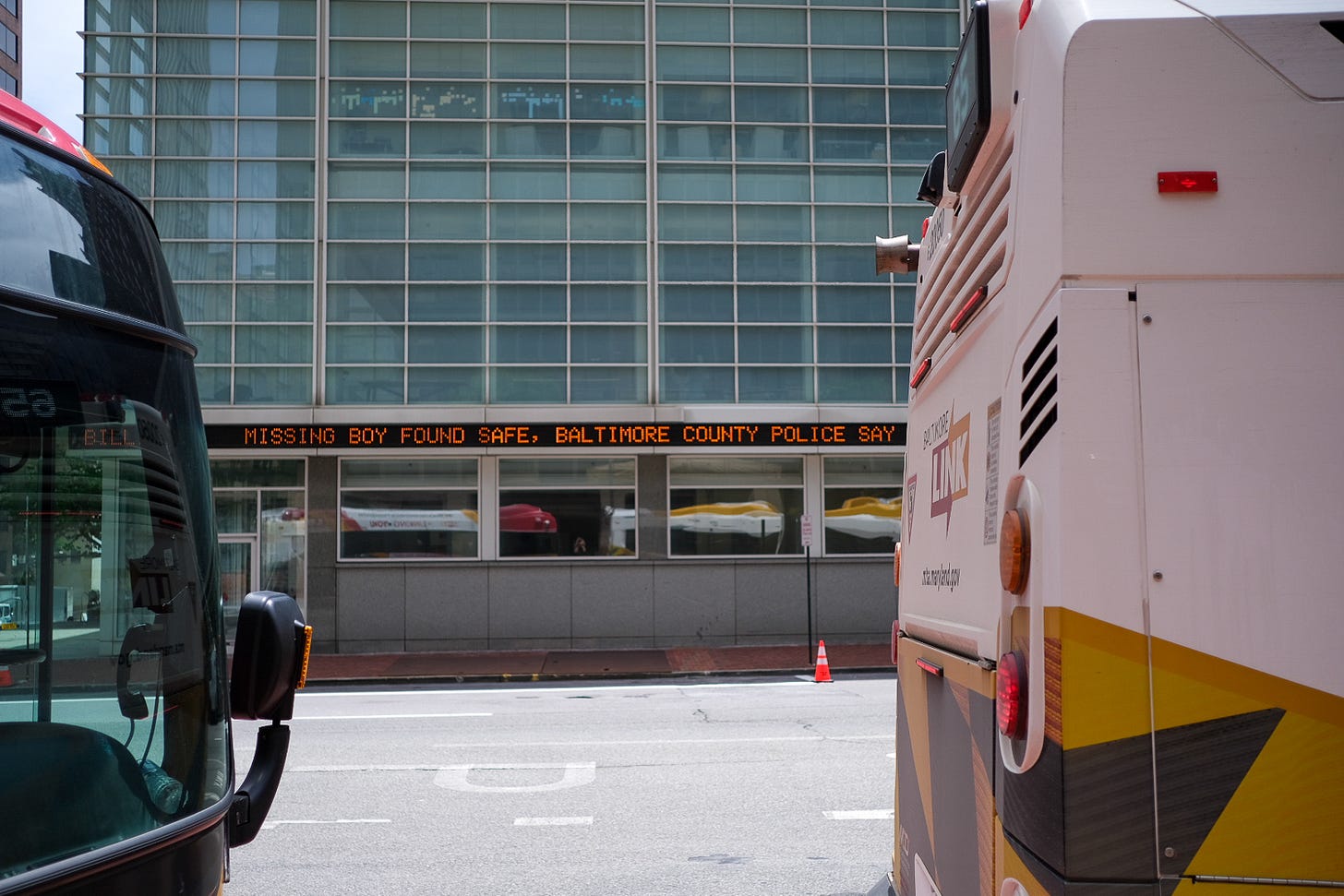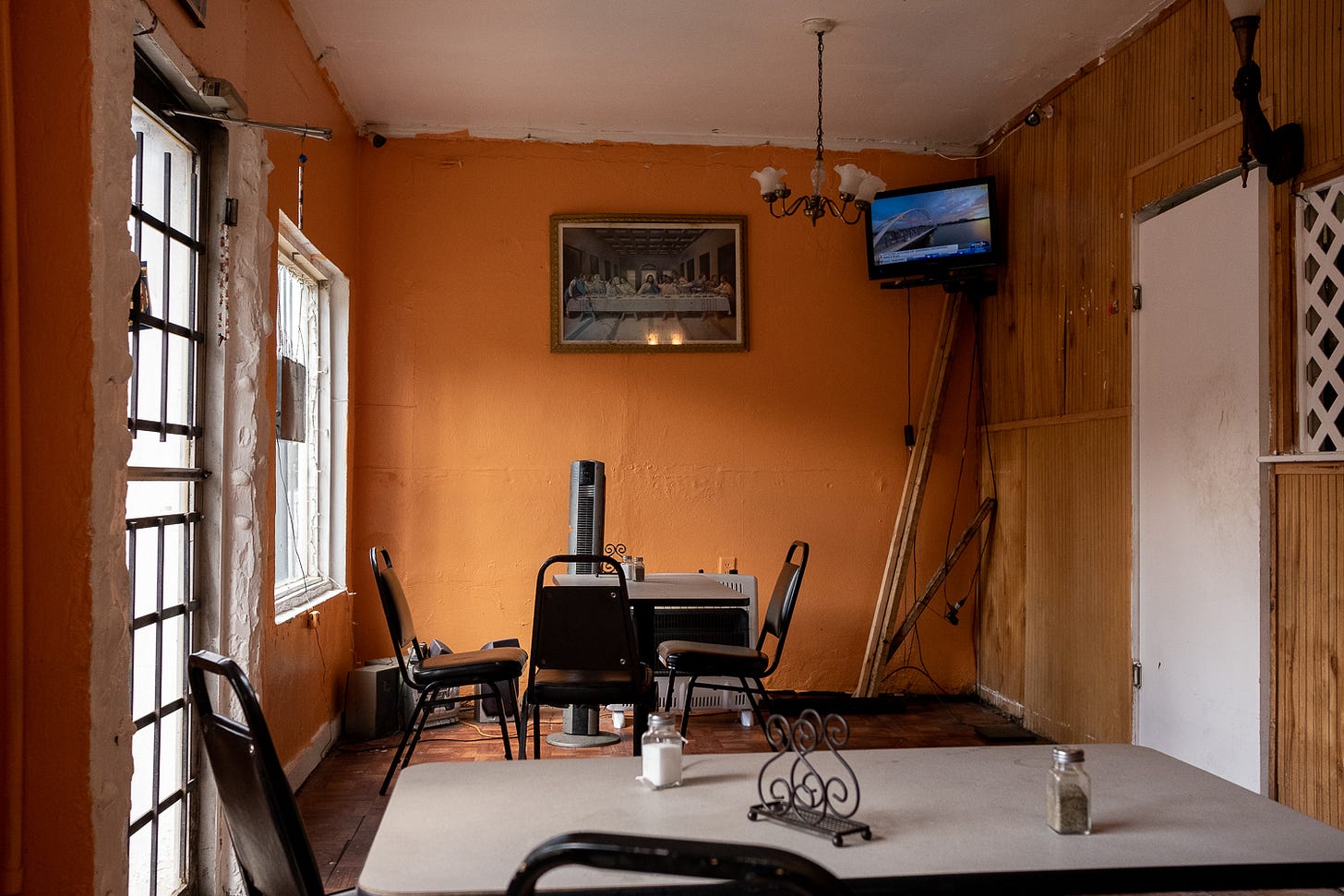Greetings, friends,
It’s been over two months since I quietly finished Sun Song, a 30 day walk spanning 10 cities along the east coast.
Instead of writing this newsletter, I let myself off the hook. I’m not good at taking breaks, but I had the sense I’d “done enough” after returning home to Brooklyn. It was time to hit pause and rest these feet.
So, I took off the entire summer. Didn’t plan on it, but each time I started writing, I thought, nope…not now.
Instead, I did this interview, visited the mountains, sat in the park and read, floated away on my couch, saw beloved friends, ate well, returned home to Iowa, and attended the state fair. I waited until the point of discomfort and then waited a little more.
I’m Alex Wolfe and this is Pedestrian, a newsletter on the observations, feelings, people and experience of walking through the built environment. If you’d like to support this work, please consider becoming a member.
I started my long, long walk in Boston, spent three nights in the city, walked all over town, and hopped on the Amtrak to Providence, where I did it all again. Slowly, in three night increments, I made my way south, stopping in Philadelphia, Baltimore, Washington, D.C., Richmond, Charleston, Savannah, Orlando, and finally Miami. When all was said and done, I’d walked about 370 miles.
Three nights is just enough time to feel like somebody, but how quickly I was spit out, sucker punched in Baltimore, and shown what little control rests in my hands. My usual tricks were rendered useless. My arms, fully extended and frantically waving, as if to stop a spilling jar of marbles before they scattered all over the floor.
Plan all you want, but the walk ultimately gets the last say. On its own time, it will tell me exactly what it needs to be and the city tells me where to go. Days unfold as they please. The walk continues to ask: who are you? What are you doing out here? It’s not the physicality of the journey that is of concern, but lacing up my shoes and stepping outside the door again and again.
I didn’t think I could move any slower, but it is possible. I did not set this tempo, it’s what the walk has asked of me. My days are punctuated with afternoons in the park. I watch airplanes erupt into the stratosphere and my stomach rumbles. I’ve learned hunger is a great way to meet people. Fellow restaurant customers tell me where to walk the next day. I’ve given up chasing marbles and let them scatter where they will.
Movement is inherently about leaving things behind, even at 3mph. Daily loops, often between 10–15 miles (although shorter on days where long train rides are necessary) have become the usual. I don’t plan my routes, but walk in one direction for a few hours and turn around once I feel I’ve gone too far. I end my days exactly where they started. Instead of a straight shot, a new town and a new bed, this walk is defined by starts and stops, pivots and readjustments. I leave my backpack at the Airbnb and carry less and less as I get closer to Miami.
It’s not convenient to travel by foot, but that’s not the point. There’s only so much you can see at this pace and it’s optimistic thinking you can cover a whole city in a couple of days. Unlike previous walks, I’ll see the same faces or frequent a business a couple times during my stay. I’m sitting with the city, building familiarity. A sense of place.
I’m told of many places to visit, but they’re too far for a walk, such as Disney World, which is over 20 miles from downtown Orlando. It would take at least 14 hours to walk there and back. Besides, I’m not here for tourist destinations or greatest hits. Instead, I’m moving at a human speed in an environment built for maximum scale.
No matter how much water I drink, I am always dehydrated and in search of a place to pee. I am always considering the next bathrooms, which are few and far between. I’ve developed a sixth sense. I know exactly which gas stations, public parks, hotels, car washes, and restaurants will allow me to use their facilities with little to no hassle. It’s easier in smaller cities, such as Providence or Richmond, where people smile and say hello.
While walking downtown Miami, my bladder is so full and I cannot wait for a restroom to appear any longer. With little concern for being discrete, I unzip my pants and piss beneath a tree. I am on high alert and surrounded by the reflective glass of new developments. There’s nobody in sight, but inside these developments are many, many toilets—none available to me. Instead, a stream of urine rolls down the sidewalk.
I move my feet so as not to get my shoes wet and look across the street—It’s just a lone storefront. I’ve never been here before, but each city sings the same tune. The area was much different long ago. There was more foot traffic and booming small business. Everyone moved out and the neighborhood evaporated. Empty lots—filled with cars—wait to be replaced by housing that few can afford.
I’m always walking south. Each day, I’m drawing closer to the equator and the height of summer. On paper, it’s still spring, but the weather speaks otherwise.
“Come back in August. You’ve seen nothin’ yet.”
I can handle the persistent heat. It hasn't dropped below 85º F since I left Philadelphia over two weeks ago, but it isn’t without sacrifice. Both of my arms suffer from heat rash, which begins below my elbow and extends to my shoulders. My neck is sunburnt and my feet are blistered. While walking the length of Long Island last October, I had to avoid stepping on walnuts. Down here, especially with the warmer climate, it’s tiny reptiles and cockroaches. Oh, so many cockroaches.
The sidewalks are unusually quiet, but filled with shadows alluding to Di Chirico. The roaches, typically of the American variety, weave in and out of the darkness. Their flat bodies are mistaken for date pits.
I admire these creatures. Their resilience—never deterred by unfavorable conditions—is inspiring. Although I cannot help removing my shirt at the drop of a dime as one crawls up my back while eating at an outdoor seafood restaurant.
Walking reminds me of my own mortality – especially in light of recent violence in the country. In Richmond, I visited a 90 foot granite pyramid monument for 18,000 Confederate soldiers who perished in the Civil War. On the train, the 90 year old woman beside me asks if I “carry that thing on me.” In Philadelphia, I saw a hit-and-run and while walking Orlando, I visited Pulse Nightclub, where 49 people lost their lives in a mass shooting. Yes, I’m slightly paranoid, but never book an Airbnb without a lock on the bedroom door and can’t sit still while waiting for a train in Washington's Union Station over Memorial Day.
I want to live, but I’m afraid of the pollution released by untamed expressways and its effects on my body. The roads carve the urban landscape like an untamed river through a Midwestern prairie. It took six million years for the Colorado River to carve the Grand Canyon, but only half a century to build 48,000 miles of interstate highways and displace nearly one million people under the guise of public responsibility—no road is really free.
Trains were a better idea, but there’s little incentive for developing robust transcontinental passenger rail in the United States. Profit is the bottom line. The Amtrak is plagued with delays as private companies own the tracks and the extreme heat can cause the steel rails to buckle, therefore trains must run at reduced speeds. We are late. Always late.
Movement creates a sense of calamity—regardless of schedule. The distant sound of the train’s horn lulls me to sleep while the diesel engines pull the cars through the rolling hills of Virginia. I watch the sun rise while eating a microwaved egg sandwich and cup of coffee. For dinner last night, it was microwaved chicken tenders with a side of ranch packets. The attendant behind the register calls me “big man” and lets me read in the diner car long after it's closed. Most passengers are asleep.
So where do you call home?
You’re lookin’ at it right here, big man.
A shoulder hugging a major thoroughfare boasts a sign that states “no pedestrians.” There is no sidewalk and in the grass I can see the footsteps of those who have moved before me. I feel the edges of something which cannot be identified and the elusivity pulls me forward.
Could this be Big Rock Candy Mountain? My walk ends in Miami, but getting there is not the point. Out here, especially in movement, I’ve no obligations and no responsibilities save for the lengthy dispatches I send each night or a 4:30am Orlando bound train leaving tomorrow. My body is healthy, I feel immense purpose and there will be no fear of missing out.
Some search for this feeling in far away places. I’m not interested in getting away, but yearn for possibility and the people that fill its edge. It’s why I walk: I am consumed by society and at the mercy of the built environment. Meanwhile, I have found inspiration on this unfavorable stretch of South Boston. I don’t want to go home. The road is my own twisted land of Cockagine.
Thanks to all who followed Sun Song. It was the walk of a lifetime. My break is over and I’ve got lots more coming soon. Hope the walking is good.
Till then,
—Alex
Brooklyn, NY
As always, I’m Alex Wolfe and this is Pedestrian, a newsletter on the observations, feelings, people and lived experiences of walking through the built environment.




